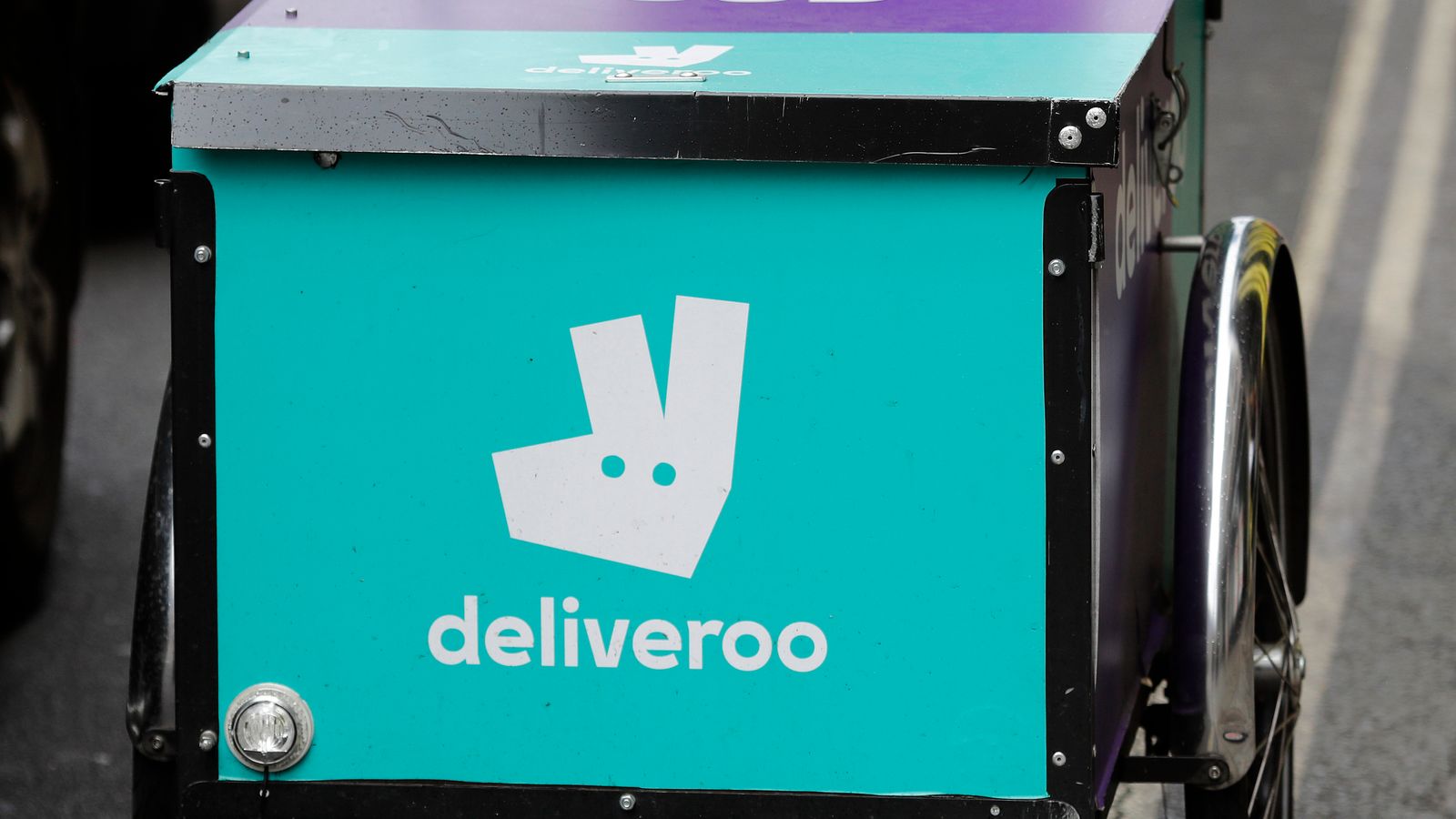Deliveroo has flagged a £223.7m underlying loss during 2020 while firing the starting gun on its London stock market flotation.
The restaurant and grocery delivery app gave prospective investors a glimpse of its financial performance as it formally confirmed its intention to launch an Initial Public Offering (IPO).
Details of the listing, including its plans to make use of a proposed dual-class share structure that will give co-founder and CEO Will Shu more control over the company, had been previously revealed.
Its trading update showed a surge in demand for its online platform during the COVID-19 crisis as dine-in restaurants were forced to close, with the number of transactions hitting a value of £4.1bn last year – a rise of 64% on 2019.
The company reported more than six million people order each month through the 115,000 restaurants, cafes and stores on its platform.
While underlying gross profit almost doubled to £357.5m the total underlying loss for the year, at £223.7m, was significantly down on the £317.3m recorded in 2019.
The company declined to put a figure on the value it was likely to seek when the share sale takes place.
Market analysts estimate it could come in between £6bn and £8bn – with the range largely reflecting recent stock market volatility globally that has hit tech stocks in particular.
Amazon-backed Deliveroo had confirmed on Sunday that it was to offer customers a slice of the action while it also planned to distribute a £50m funding pot to restaurants, riders and community groups on the day of its listing.
Mr Shu said: “Now we take the next big step in our journey by allowing everyone to have a share in our future.
“That’s why we are planning to take Deliveroo public here in London, the city where it all started – and we plan to offer our customers across the UK the chance to own a part of the business.
“We are proud to be enabling our customers to participate in a future float and have the chance to buy shares.”
It confirmed that a planned US-style dual-class share structure – set to be formally given the green light under a shake-up of rules that aim to make London’s stock markets more attractive to entrepreneurs – would last for the first three years of the listing.
It would initially give Mr Shu 20 votes per share and provide all other shareholders with one vote per share.


